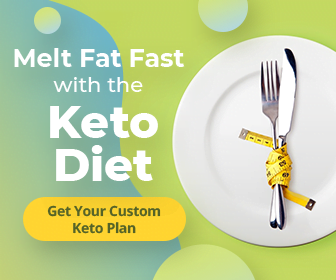Introduction
The keto weight-reduction plan is a powerful tool for weight loss, but it is able to result in electrolyte imbalances, inflicting various health troubles. Understanding these modifications and proactively handling your electrolytes is important for ordinary nicely-being.

The Impact of Low Carb Eating
Eating low carb, particularly beneath twenty carbs, alters how your frame procedures electrolytes, increasing the risk of imbalances and dehydration. This shift, coupled with decreased insulin manufacturing, can lead to speedy water weight reduction, impacting your average electrolyte degrees.
The keto diet can be the answer you’re looking for if you want to lose weight. However, there is a side effect to the diet that you have to understand and watch out for. Sometimes on the keto diet, your electrolytes can get out of balance.
When that happens, you’ll end up not feeling your best and for your health’s sake, you’ll need to make sure that you get the electrolytes that your body needs. Eating low carb, especially under twenty carbs, means that the way electrolytes are processed in your body changes.
Sodium: Your Ally at the Keto Journey
Ensure an good enough consumption of salt on your keto weight loss program to assist your frame keep water. Sodium is essential, and deficiency can result in muscle disorder, pain, and cramping. Boost sodium levels by seasoning your meals or incorporating sodium-rich broths into your meals.
It’s these changes that can lead to an imbalance along with dehydration. The biggest risk is right at the beginning of the diet, but it can happen at any time. Because you’re eating so few carbs, you won’t be needing the same amount of insulin that you once did.
Your pancreas will slow production of insulin. When that happens, your stored glucose ends up well below the amount you once had. You can even reach the point where your body is no longer storing glucose.
Potassium-Rich Foods

Prioritize meals excessive in potassium, a critical mineral for heart fitness, for your keto weight-reduction plan. Include objects like bacon and avocado to aid potassium stages, preventing potential troubles related to its deficiency.
Once the body reaches that point, you’ll experience a faster weight loss because your kidneys are kicking into high gear to rid the water, rather than keeping it. With a water weight loss, your drop in weight will be noticeable right away.
You’ll see more pounds lost on the scale than ever before. While losing your water weight isn’t really a problem, what is a problem is that your electrolytes are being lost right along with the water.
Magnesium Matters
Don’t overlook magnesium, an crucial mineral for muscle feature and normal fitness. A magnesium deficiency can result in muscle cramps, excessive blood strain, abnormal heartbeat, fatigue, anxiety, and compromised bone health. Ensure you contain magnesium-rich meals or supplements into your keto adventure.
When you don’t have the right balance of electrolytes, your body will make this known.
You’ll experience headaches and muscle cramps. You may have digestive problems. Your heart can race and you might feel sick to your stomach or dizzy.
Watching out for your electrolyte balance is something you need to take care of long before it’s ever a problem. Make sure that you have plenty of salt in your keto diet. Salt helps the body hold onto water and you need sodium when you’re on the keto diet.
Proactive Electrolyte Management
Without enough sodium, you’ll notice that your muscles aren’t working well and you’ve experiencing pain and cramping. You can use more salt in your food or make dishes using broth, which is high in sodium.
Include foods that are high in potassium in your keto diet. You need potassium for your heart’s sake. Eat foods that are rich in this mineral. This would be something like bacon, or avocado.
Also make sure that you’re also getting enough magnesium. If not, it can cause muscle cramps, high blood pressure, irregular heartbeat, fatigue, nervousness and poor bone health over time.
Key Takeaways:
- Regularly monitor and manage your electrolyte balance on the keto diet to avoid potential health issues.
- Prioritize sodium-rich foods and broths to support water retention and muscle function.
- Include potassium-rich foods like bacon and avocado to enhance heart health.
- Ensure an adequate intake of magnesium to prevent muscle cramps, high blood pressure, and fatigue.
Conclusion
In conclusion, maintaining electrolyte balance is essential for a successful and healthy keto journey. With strategic planning and focus on key minerals, you can enjoy the benefits of the keto diet while minimizing potential side effects.










